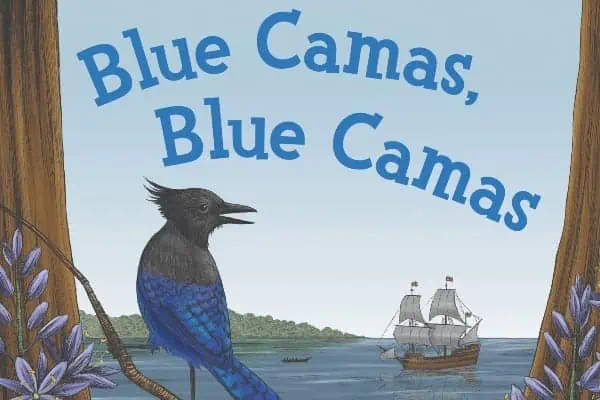“We imagined ourselves free of the hassles and troubles we’d accumulated in Toronto. We imagined a life without rushing, without the subway, without neighbours at each other’s throats, without the noise and frustration of daily commutes. Life with space. Life without the massacre of endless winter, frozen pipes, cracking plaster and mountains of snow to overcome each morning.”
–excerpt from The Woods, by Amber McMillan
After Toronto’s worst winter in decades, Amber McMillan is finished with the cold hustle of the big city. She’s tired of the urban trudge, tired of the commute, tired of neighbours whinging, and now she wants out.
So along with her partner, Nate, and daughter, Lily, she leaves Toronto to find a life with less emotional, and literal, congestion. They move to Protection Island, a small community off the coast of east Vancouver Island, to find a simpler existence beyond the busy hubbub of the big smoke. In The Woods, McMillan documents the first year of their journey and the mix of returns while adjusting to their new life in the more rural Pacific Northwest.
Anyone who has lived in a small town knows it’s not simply a life of leisure. True, it’s often quieter, access to nature is undeniably easier and the connections you have within the community are tighter, or at least more personal.
But, as McMillan soon finds out, those luxuries come with other issues attached: the lack of amenities, creature comforts and other modern-day conveniences are very real and time-consuming. And then there’s those friendly neighbours you see everyday who double as the nosiest people you’ve ever met and are brazenly unafraid to publicly pass judgement on your private matters.
Protection Island is not actually that remote – it’s only 1.5 kilometers away from Nanaimo, the second-largest city on Vancouver Island – but it’s a far cry from their condo life in Toronto. McMillan and her family are faced with a steep learning curve as they find island life not quite as cruisy as they’d imagined. Where they traded in a busy train commute, they now find themselves dependant on a boat with a faulty motor; they traded in the silence of anonymity for the squabble of small-town politics and the stress of jobs with responsibility to the stress of not having one at all.
The Woods is a journal of sporadic delights and hardships of time on “the Island” over a year. McMillan writes personably about the characters and the history that inhabit the tight-knit community, and her struggles in finding her own space among them. While she doesn’t choose a specific theme to emphasize, her series of anecdotal accounts are delivered in finely-described detail.
It’s an oft-romanticized picture — moving away from the hustle and bustle to live with more connection, as small-town folk do in their slow-paced ways and, as McMillan suggests, living a “nobler” life.
But what the author grapples with realizing is: small-town life isn’t easier or better, it’s simply different. As every life situation is, each with their own pattern of conveniences and inconveniences that you’ll have to match together and find the blend that works best for you. It’s about choice, and the grass may alway seem greener until you are able to weigh the variables honestly for the lifestyle you desire.
The Woods is filled with some rather standard observations of small-town living, however, chapters of the author’s personal journaling are spiced up by the inclusion of historical narratives which add more concrete intrigue into a book of personal experience.
This is a conversational read, and maybe a timely one reminding us to see the positives in where we live and maybe even find gratitude as we grunt through the last stretches of winter.




